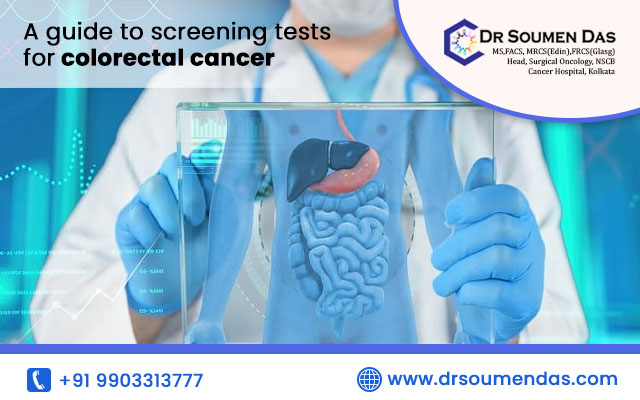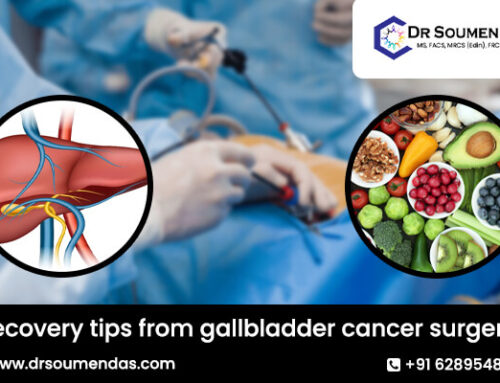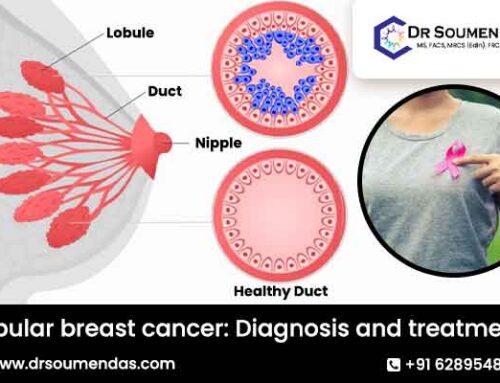Colorectal cancer is the third most common cancer in the world. Screening tests can detect colorectal cancer at an early stage, making it easier to treat and improve the chances of survival. Below, a rectal cancer surgeon in Kolkata has provided a guide to screening tests for colorectal cancer.
Who should get screened for colorectal cancer?
As per the best rectal cancer doctor in Kolkata, it is recommended that individuals at average risk of colorectal cancer must start regular screening at age 45. For instance, in case you have a family history of colorectal cancer, inflammatory bowel disease, or other risk factors, you may need to start screening earlier or more frequently after consulting your doctor.
Types of screening tests for colorectal cancer
- Fecal occult blood test (FOBT):
The fecal occult blood test (FOBT) is a simple and non-invasive test that looks for blood in your stool. Blood in stool may be a sign of colorectal cancer or other gastrointestinal problems. This test is recommended for people aged 50-75 years, and it is usually done once a year.
- Stool DNA test:
The stool DNA test is another non-invasive test that checks for changes in the DNA of cells shed by the colon into the stool. This test can detect early signs of colorectal cancer or precancerous polyps. It is recommended for people aged 45 years and older, and done once every three years.
- Flexible sigmoidoscopy:
Flexible sigmoidoscopy is an invasive test that uses a thin, flexible tube with an attached camera and light to examine the lower part of the colon. It can detect polyps and other abnormalities that may be a sign of colorectal cancer.
- Colonoscopy:
According to a doctor of rectal cancer surgery in Kolkata, colonoscopy is a more invasive test that examines the entire colon using a long, flexible tube with a camera and light. This test can also find polyps and abnormalities that may be a sign of colorectal cancer, and it can also remove polyps during the test. People aged 50 years and older can get this test once every three years.
- CT colonography:
CT colonography, also known as virtual colonoscopy, uses a CT scanner to produce detailed images of the colon. It is recommended for people aged 50 years and older.
You must reach out to a rectal cancer doctor who can recommend the best screening test for you.






